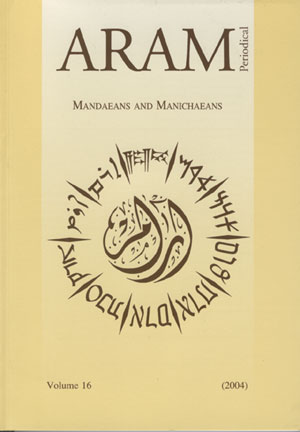 previous article in this issue previous article in this issue | next article in this issue  |

Preview first page |
Document Details : Title: Astrology in Philo of Alexandria's De vita contemplativa Author(s): TAYLOR, Joan E. , HAY, David Journal: ARAM Periodical Volume: 24 Date: 2012 Pages: 293-309 DOI: 10.2143/ARAM.24.0.3009278 Abstract : In Philo of Alexandria’s treatise De Vita Contemplativa, there are comments about the ridiculousness of those who, instead of worshipping God, worship what he has created in the heavens. Philo writes: What about people who revere the great bodies that have been formed from the elements – the sun, moon, and other stars, wandering planets or fixed, or the entire sky and its adornment together? However, these things also have not come into being by themselves, but by a certain Maker in perfect knowledge. Philo here provides an indication that there was a specified worship of deities conceptualised as being the heavenly bodies. It follows Philo’s definition of the four elements as being equated with deities, and seems to be aimed at those Stoics who ‘rationalise’ mythology into the veneration of naturally-observable forces and entities. Elsewhere, Philo specifically identifies the deities thus worshipped: the sun is Apollo, the moon Artemis, the morning star Aphrodite (Venus) and the ‘twinkler’ Hermes (Mercury), and notes also others ‘named by myth-makers who have made up stories designed to deceive, and won fame for their skill in naming’ (Decal. 56-57). Philo also here denounces the deification of heaven as two hemispheres in the cult of the Dioscuri. This paper will explore the astral symbolism indicated by Philo’s references. |


